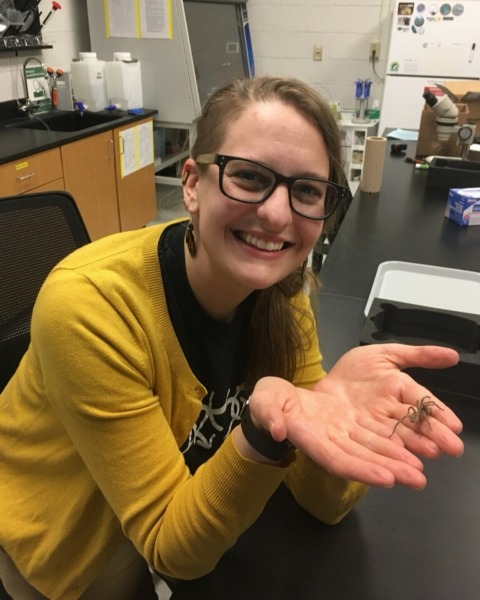Back
Systematics, Evolution, and Biodiversity
10-Minute Paper
SysEB: Evolution
Paternal symbiont infection promotes production of daughters in a linyphiid spider
Tuesday, November 15, 2022
3:30 PM – 3:42 PM PT
Location: Vancouver Convention Centre, Meeting Room 212
- JW
Jen A. White
Professor
University of Kentucky
Lexington, Kentucky - LR
Laura Rosenwald
University of Kentucky
Lexington, Kentucky 
Emily Shea Durkin
University of Tampa
Tampa, Florida
Presenting Author(s)
Co-Author(s)
Some maternally-inherited bacterial symbionts can promote the production of female offspring in their hosts, to continue propagation of the bacterial lineages. In the Linyphiid spider Mermessus fradeorum, a consortium of 5 co-inherited bacterial symbionts induce feminization of their host, causing genetic males to develop as functional females through an unknown mechanism. We know, however, that some sort of collaboration among the co-infecting symbionts appears to be critical to maintaining this phenotypic effect. We also know that one symbiotic member of the consortium (a strain of Rickettsiella) causes a different reproductive manipulation, cytoplasmic incompatibility (CI), in which matings between uninfected females and Rickettsiella-infected males have reduced viability. As part of a different experiment, we have been consistently mating 5-fold infected feminized spider lineages with either Rickettsiella-infected (CI-inducing) males or with uninfected males, to test effects on bacterial community composition and CI rescue ability across generations. Surprisingly, we have found that mating with Rickettsiella-infected males appears to strengthen feminization relative to matrilines mating with uninfected males, suggesting that Rickettsiella plays a role in both CI and feminization phenotypes in this host species.

